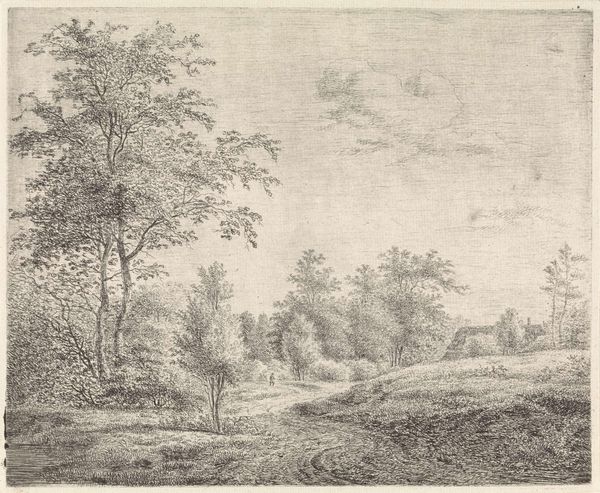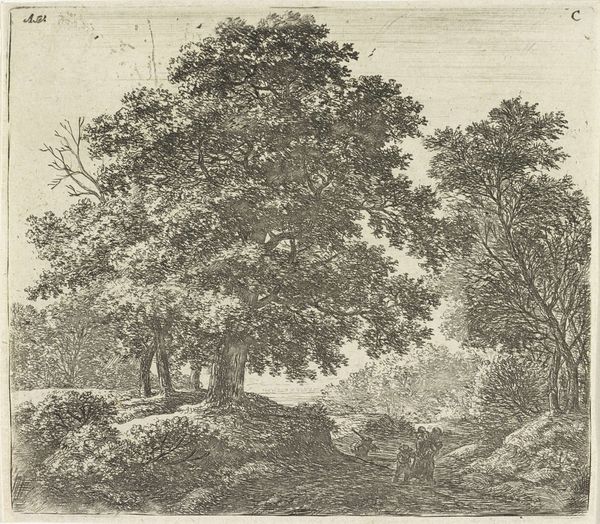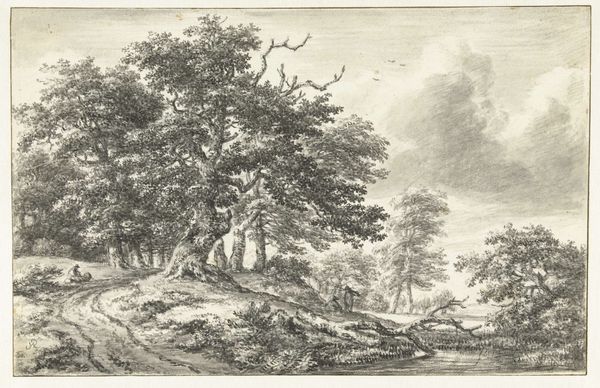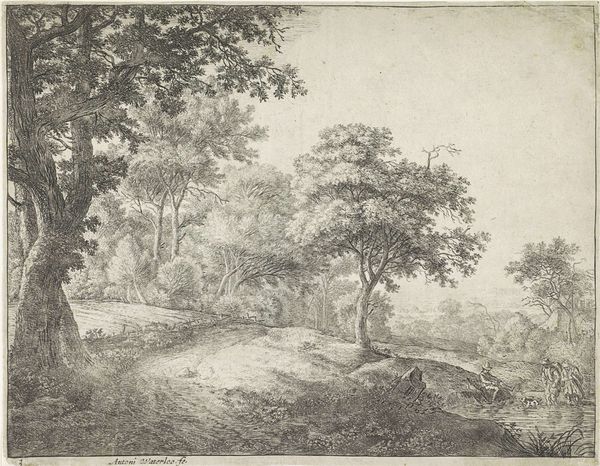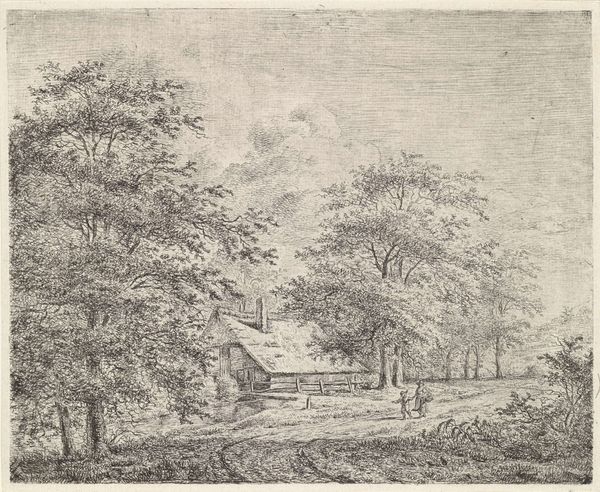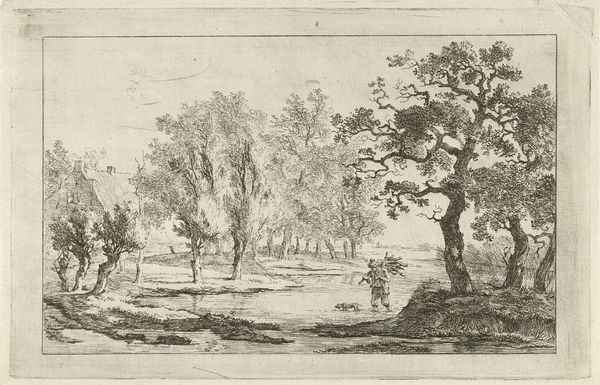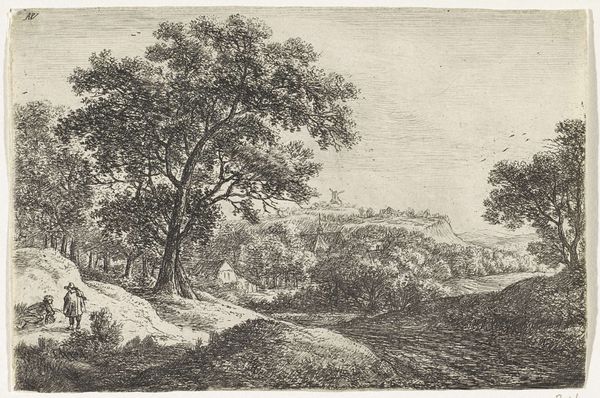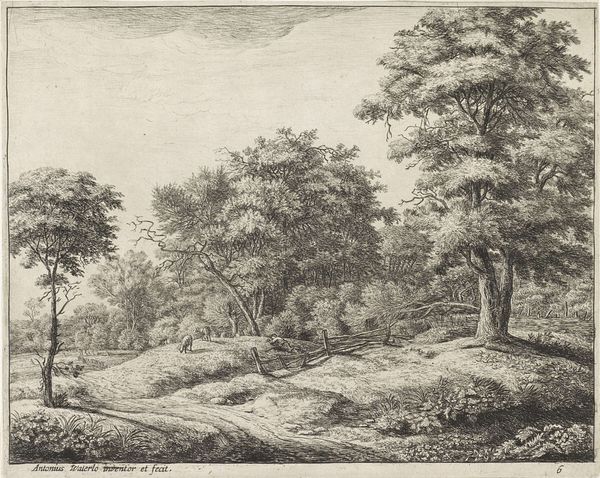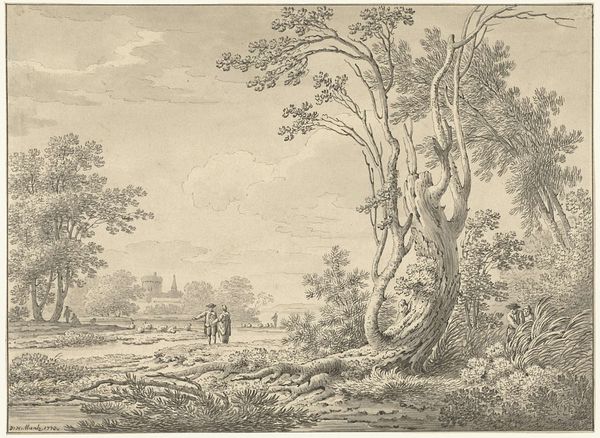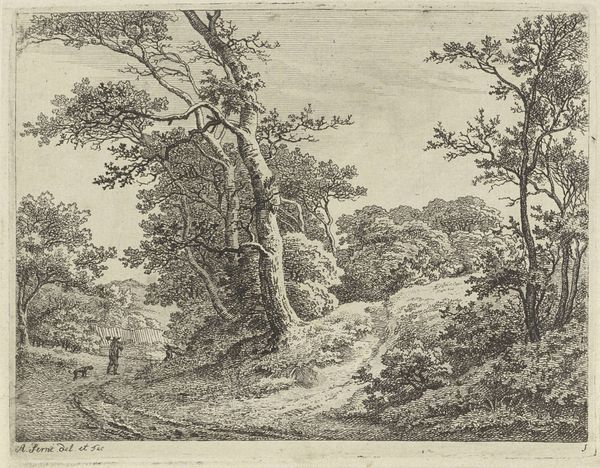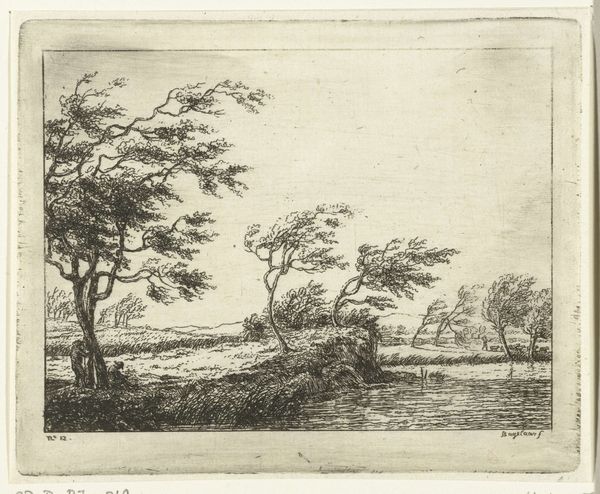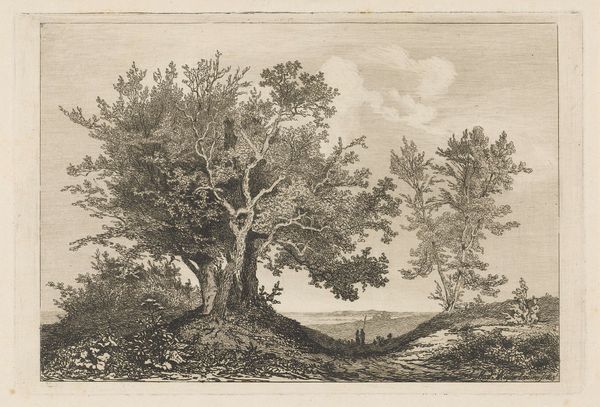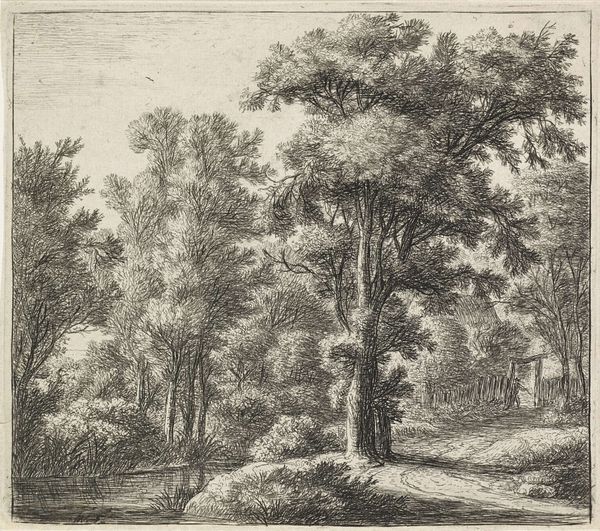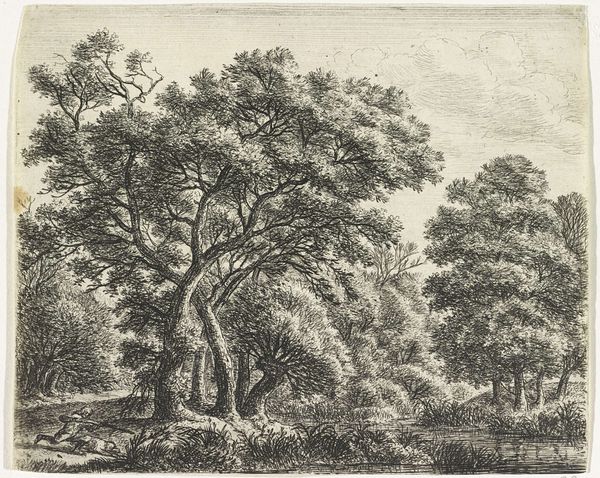
print, etching
# print
#
etching
#
landscape
#
pencil drawing
#
romanticism
Dimensions: height 162 mm, width 196 mm
Copyright: Rijks Museum: Open Domain
Pieter Janson made this etching of a landscape with a farm and two figures sometime in the late 18th or early 19th century. The image evokes a kind of nostalgic ruralism, common in the Netherlands during a time of rapid urbanization. Consider the institutions that upheld this artistic style: the art academies that trained artists, and the art market that rewarded them for paintings that idealized country life. The way Janson constructs meaning through visual codes is interesting; the scene is not a realistic depiction but a carefully arranged composition that reinforces certain ideas about the natural world. Note, for instance, the lone tree that dominates the composition. This detail lends the landscape a sense of timelessness, a common artistic trope at the time. As historians, we use a variety of resources—archival documents, periodicals, exhibition catalogues—to better understand the circumstances in which art is made. Doing so reminds us that art is never made in a vacuum, and its meaning is always shaped by social and institutional context.
Comments
No comments
Be the first to comment and join the conversation on the ultimate creative platform.
